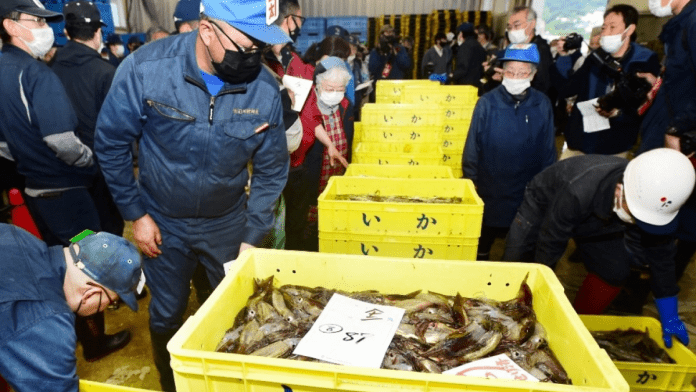News in brief:
– China maintains import ban on Japanese seafood due to concerns over Fukushima nuclear-contaminated wastewater dumping.
– Local fishermen in Japan feel financial losses as Chinese import ban persists, while bilateral talks show no signs of immediate resolution.
China maintains its import ban on Japanese seafood amid ongoing concerns over the dumping of nuclear-contaminated wastewater into the ocean. The ban, imposed in response to Japan’s actions, has left many local fishermen grappling with financial losses and uncertainty about the future.
A recent survey conducted by Kyodo News revealed that the majority of Japanese fishery groups have felt the repercussions of the import ban imposed by China. Out of 36 respondents from the National Federation of Fisheries Cooperative Associations, 29 reported experiencing negative effects, attributing them to the contaminated water discharge from Fukushima.
Chinese experts have indicated that the ban is unlikely to be lifted in the near term due to several key factors. Chang Yen-chiang, director of the Yellow Sea and Bohai Sea Research Institute of Dalian Maritime University, highlighted ongoing concerns about the discharge of nuclear-contaminated water and its potential long-term impacts on food safety and public health.

Despite calls for action, the operator of the Fukushima Daiichi plant, TEPCO, plans to escalate the discharge of contaminated water in the coming fiscal year. This decision has raised alarm among experts who warn of escalating risks associated with radioactive substances accumulating in the environment.
Calls for fundamental solutions
Chang emphasised the importance of addressing the Fukushima nuclear issue at its core to prevent further environmental degradation. Without comprehensive solutions, such as addressing the burnt-out nuclear reactors, the problem could persist for generations, exacerbating the situation for both Japan and its neighbors.
Efforts to resolve the issue through bilateral talks have yet to yield significant progress. Despite discussions between Japanese and Chinese officials, including nuclear experts, there are no indications that China will lift its import ban on Japanese marine products soon.
As concerns persist, experts have called for increased monitoring of Japanese agricultural products and cosmetics imports to ensure public safety. The need for vigilance is underscored by reports of leaks and soil contamination near the Fukushima plant, further complicating efforts to address the crisis.



